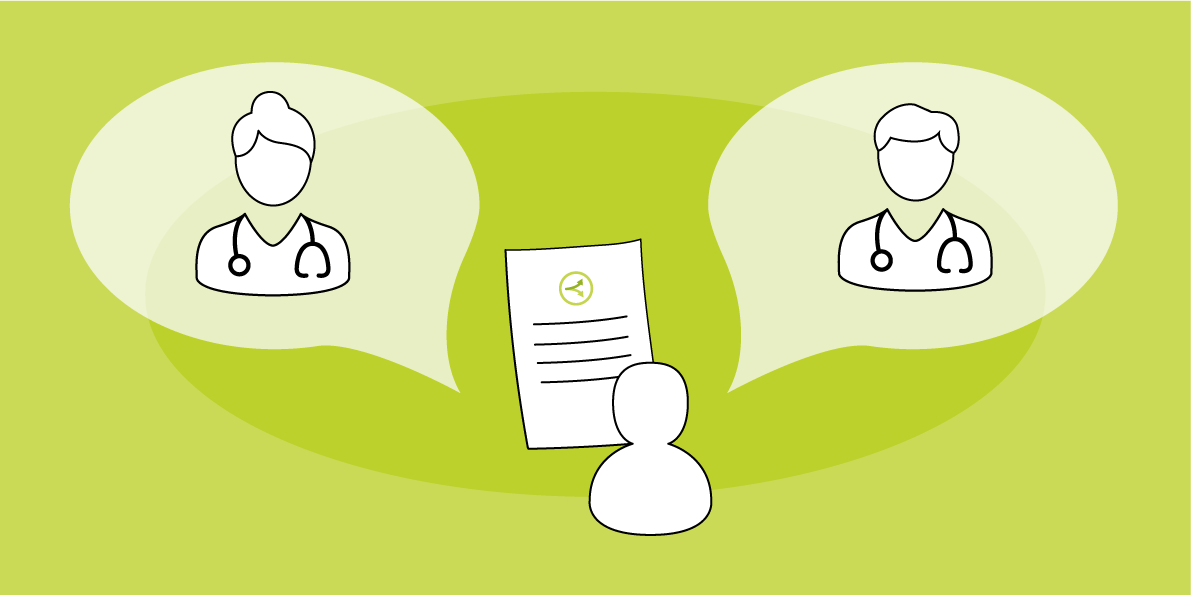What is a second opinion?
There is a legally mandated procedure for getting a second medical opinion for certain non-emergency procedures. That means that the doctor recommending one of procedures must inform you of your right to discuss the decision for or against the procedure a second time with another specialist.
This right applies to all of the procedures listed below.
When is a second opinion a good idea?
A lot of illnesses can be treated in more than one way. Often, none of the alternatives is ideal, and they each have their pros and cons. The best choice for you depends very much on your personal situation and your own preferences. Speaking to a second doctor can help when making a decision.
Some patients are reluctant to question doctors' recommendations. The second medical opinion procedure aims to make sure that all patients have the chance to make an informed decision in their own time.
How do I get a second opinion?
If one of the procedures listed above is recommended to you, the doctor normally has to tell you about your right to a second medical opinion at least ten days before the planned operation.
The Federal Joint Committee (G-BA) has a leaflet with detailed information about your right to a second medical opinion.
If you feel you have enough information and don't have any further questions, you needn't do anything. The second opinion is a voluntary offer that you don't have to make use of.
If you would like a second medical opinion, you can find a list of the doctors you can contact below. You can also ask your health insurance provider about suitable specialists.
These doctors have special qualifications. What is more, they aren't allowed to work in the same practice or hospital as the first doctor. And they aren't allowed to work at the hospital where the operation will be done.
Once you have found a doctor for a second opinion, you can make an appointment to talk with them.
Will I be examined again?
The doctor needs any documents you have so far, such as medical reports and test results. You will be told which documents you need when you make the appointment. You can ask to take the medical reports with you at your first doctor's practice. Or have them sent directly to the second doctor. Both options are free of charge.
Generally, the second doctor will not examine you again; rather, they will read your file and ask any further questions they might have. The doctor will talk to you if they think further examinations would be a good idea.
What do I do with the second opinion?
The second doctor will discuss the recommendation with you. You are free to choose which treatment you think is best for you, so you can also cancel any operation appointments you might have already made.
You may also request a written summary if you like. You can have the recommendation sent to your first doctor.
Further support
You can find more support for making difficult decisions in "Gathering information and making a decision."
What treatment options are available?
There are various treatment options for cardiovascular (heart and blood vessel) diseases – including the implantation of a pacemaker or defibrillator. Our decision aids summarize the pros and cons.

